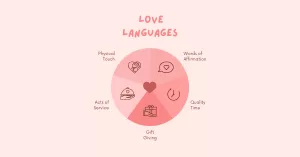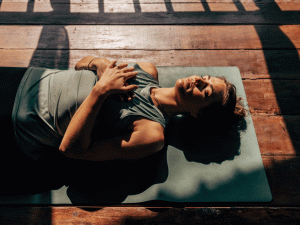Taking part in practices that promote self-care can help lower stress and anxiety. These activities might include increasing physical activity, engaging in mindfulness exercises, and maintaining a nutritious diet.
Reducing the persistent pressures of everyday life wherever possible supports overall health. Long-term stress can raise your likelihood of developing health issues such as:
- heart disease
- anxiety disorders
- depression
Several elements can influence how susceptible you are to stress. These include:
- the amount of social support you have
- your coping mechanisms
- personality traits
- experiences of discrimination based on race, gender or perceived gender, LGBTQIA+ identity, socioeconomic status, or other characteristics
- childhood trauma
- your occupation
1. Increase physical activity
A study of 185 college students discovered that taking part in aerobic exercise twice weekly significantly lowered overall perceived stress and stress tied to uncertainty.
Health guidelines advise about 150 minutes of moderate-intensity aerobic activity each week, along with two sessions of strength-training.
If you’re not active right now, begin with low-impact activities like walking or cycling. Picking something you enjoy makes it more likely you’ll maintain it over time.

2. Follow a balanced diet
Research indicates that people who consume diets high in ultra-processed foods and added sugars tend to report higher perceived stress.
Chronic stress can also lead to overeating and increased intake of ultra-processed items.
Failing to eat enough nutrient-rich whole foods can raise the risk of deficiencies in nutrients important for mood and stress regulation, such as magnesium and B vitamins.
Cutting back on heavily processed foods and beverages and choosing whole foods helps nourish your body and may boost your capacity to manage stress.
Examples of whole foods include:
- vegetables
- fruits
- beans
- fish
- nuts
- seeds
3. Limit screen time
Evidence shows that excessive smartphone and screen use has been associated with higher stress levels.
Too much screen time can also disrupt sleep, which contributes to heightened stress.
4. Practice self-care
Self-care doesn’t need to be complicated. It simply means looking after your well-being and happiness. Practicing self-care is linked with improved mental health.
Examples of self-care activities include:
- taking a walk outdoors
- enjoying a bath
- lighting candles
- reading an engaging book
- exercising
- preparing a wholesome meal
- doing stretches before bed
- getting a massage
- pursuing a hobby
- using a diffuser with soothing scents
- practicing yoga
5. Try journaling
Writing in a journal can help ease stress and offer a constructive outlet for your thoughts and feelings.
If you prefer guided prompts, consider using a structured journal that encourages expressive writing.
6. Cut back on caffeine
Too much caffeine may exacerbate stress, according to research. Excessive consumption can also harm sleep, which in turn raises stress.
While moderate coffee intake has benefits, it’s advisable to keep daily caffeine under recommended limits—about 400 mg per day, which is roughly 4–5 cups (0.9–1.2 L) of coffee.
7. Spend time with loved ones
Having a supportive social network is important for mental health.
A study of 163 Latinx young adults found that lower support from friends, family, and romantic partners correlated with higher perceived stress.
If you lack close contacts, support groups can help. Think about joining a club, sports team, or volunteering for a cause you care about.
8. Set boundaries and learn to say no
Being selective about commitments—and declining demands that would overload you—can lower stress levels.
Establishing boundaries, especially with people who contribute to your stress, is a healthy way to protect yourself.
This could be as simple as asking someone not to drop by unexpectedly or postponing plans when you feel overwhelmed.
9. Avoid procrastination
Putting things off can increase stress, which negatively affects health and sleep. You may also be more prone to procrastinate when stressed as a coping strategy.
A study of 140 medical students linked procrastination with higher stress.
If procrastination is a frequent issue, try making a to-do list. Set attainable deadlines and tackle tasks in order of priority. Sometimes adding an item to the list helps reduce its psychological burden, even if you don’t complete it immediately.
10. Take a yoga class
Research indicates that yoga can decrease stress and support psychological well-being.
Yoga has been shown to lower cortisol, blood pressure, and heart rate while raising levels of gamma-aminobutyric acid (GABA), a neurotransmitter often low in people with mood disorders.
11. Practice mindfulness
Mindfulness-based stress reduction techniques include meditation and mindfulness-based cognitive therapy (MBCT), a form of cognitive behavioral therapy.
Regular meditation, even for short sessions, can improve mood and reduce symptoms of stress and anxiety.
Many apps and websites offer guided meditations, and there may be local therapists who specialize in MBCT.

12. Cuddle
Research shows that positive physical touch can help alleviate stress.
Such contact can raise oxytocin and lower cortisol, which in turn helps reduce blood pressure and heart rate—physical signs often elevated during stress.
13. Spend time in nature
A study found that just 10 minutes in a natural environment can improve psychological and physiological indicators of well-being, including perceived stress, among college-aged individuals.
Hiking and camping are excellent options, but if those aren’t available or enjoyable, urban green spaces can also help. Look for:
- local parks
- arboretums
- botanical gardens
14. Practice deep breathing
Studies have linked diaphragmatic breathing with reductions in stress.
Deep breathing techniques include:
- diaphragmatic breathing
- alternate nostril breathing
- box breathing
These exercises encourage you to slow and deepen your breath. Inhaling slowly through the nose expands the lungs and lifts the belly, which helps slow the heart rate.
15. Spend time with a pet
Owning a pet can lower stress and lift your mood. Touching or cuddling your pet releases oxytocin, a hormone associated with positive feelings.
Pets may also reduce stress by:
- providing a sense of purpose
- keeping you physically active
- offering companionship
16. Consider supplements
Various vitamins and minerals are important for the body’s stress response and mood regulation. Lacking one or more nutrients can affect mental health and stress resilience.
For example, magnesium levels can be depleted during prolonged stress.
Because magnesium plays a role in the stress response, ensuring adequate intake or using supplements has been associated with reduced stress in people experiencing chronic stress.
The takeaway
Ongoing stress can negatively impact both physical and mental health.
Increasing exercise, practicing mindfulness, spending time with pets, cutting down on screen time, and getting outdoors more often are practical ways to lower stress.

























Leave a Reply
You must be logged in to post a comment.